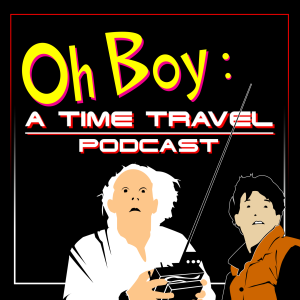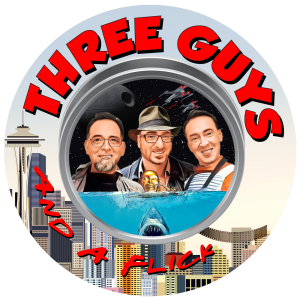

The Usual Suspects: Iconic Dialogues, Powerful Quotes, and Unforgettable Facts
SummaryBryan Singer’s The Usual Suspects is a labyrinthine thriller that keeps viewers guessing until its unforgettable climax. The story unfolds as Verbal Kint, a seemingly meek con man, recounts the events leading up to a deadly boat explosion to the police. Through Verbal’s perspective, we learn about a group of criminals brought together for a heist orchestrated by the enigmatic and fearsome figure, Keyser Söze. As the narrative twists and turns, the line between truth and deception blurs, culminating in one of cinema’s most iconic reveals. With a compelling script, exceptional performances, and a haunting score, The Usual Suspects remains a masterclass in suspense and storytelling.
Dialogues"The greatest trick the Devil ever pulled was convincing the world he didn't exist."
This quote suggests that the most profound deceptions are those that make us question reality and accept falsehoods as truth. It underscores the power of belief and perception, reminding us that what we don't see can be more dangerous than what we do.
"I believe in God, and the only thing that scares me is Keyser Soze."This line highlights the terrifying power and enigmatic nature of Keyser Soze, elevating him to a level of fear beyond divine belief. It reflects on how human fear can overshadow even spiritual convictions.
"How do you shoot the Devil in the back? What if you miss?"This metaphorical question illustrates the futility and risk involved in confronting an embodiment of evil. It suggests that facing our greatest fears requires precision and courage, with the potential for dire consequences if unsuccessful.
"To a cop, the explanation is never that complicated. It's always simple. There's no mystery to the street, no arch-criminal behind it all."This quote reflects a life philosophy that often, people look for simple answers to complex problems, ignoring the possibility of deeper, more intricate truths lurking beneath the surface.
"A man can convince anyone he's somebody else, but never himself."Here, the quote delves into the theme of identity and self-awareness, suggesting that while one might deceive others about who they are, they cannot escape their own understanding of themselves.
"Keaton always said, 'I don't believe in God, but I'm afraid of him.' Well, I believe in God, and the only thing that scares me is Keyser Soze."This juxtaposition of belief and fear emphasizes the theme of existential dread and how human fear can sometimes eclipse spiritual beliefs.
"The truth is, it was the lawyer that did it."This quote plays on the idea of misdirection and perception, reminding us that the truth can be obscured by our own biases and assumptions about others.
"You think you can catch Keyser Soze? You think a guy like that comes this close to getting caught and sticks his head out?"This emphasizes the elusive nature of true power and cunning, suggesting that those who wield it are always one step ahead and perpetually out of reach.
"Who is Keyser Soze?"This question encapsulates the central mystery of the film and serves as a metaphor for the unknowable aspects of life and the personas people project versus who they truly are.
"We were a little bit too perfect, I guess. I mean, for a bunch of crooks, we sure had a lot of class."This reflects on the irony and complexity of character, suggesting that even those on the wrong side of the law can possess qualities typically associated with nobility and sophistication.
"I'm smarter than you. And I'm gonna find out what I wanna know, and I'm gonna get it from you whether you like it or not."This line highlights determination and the relentless pursuit of truth, even in the face of resistance, embodying a philosophy of perseverance and tenacity.
"It was Keyser Soze, Agent Kujan. I mean the Devil himself. How do you shoot the devil in the back? What if you miss?"This reiterates the idea of confronting evil and the inherent risks, suggesting that some challenges in life require absolute certainty and precision.
"You know what happens if you do another turn in the joint? You’re gonna be somebody’s b****."This blunt dialogue reflects the harsh realities and consequences of life choices, emphasizing the need to consider long-term implications of one's actions.
"Back when I was picking beans in Guatemala, we used to make fresh coffee, right off the trees. That was good. This is s***, but hey, I'm in a police station."Using humor to highlight change and adaptation, this quote suggests the importance of appreciating the present moment despite its imperfections.
"You think you can catch Keyser Soze? You think a guy like that comes this close to getting caught and sticks his head out?"It emphasizes the elusive nature of power and cunning, suggesting that those who wield it are always one step ahead and perpetually out of reach.
"A rumor's not a rumor that doesn't die."This speaks to the power of stories and myths, suggesting that enduring tales have a kernel of truth that keeps them alive, reflecting on the power of narrative.
"Keaton always said, 'I don't believe in God, but I'm afraid of him.' Well, I believe in God, and the only thing that scares me is Keyser Soze."This juxtaposition of belief and fear emphasizes existential dread and how human fear can sometimes eclipse spiritual beliefs.
"There's nothing that can't be done."This simple yet powerful statement embodies a philosophy of possibility and determination, encouraging a mindset that views challenges as surmountable.
"The truth is, it was the lawyer that did it."This quote plays on the idea of misdirection and perception, reminding us that the truth can be obscured by our own biases and assumptions about others.
"One cannot be betrayed if one has no people."Emphasizing themes of trust and loyalty, this quote suggests that isolation can be a defense against betrayal, but at the cost of meaningful human connections.
FactsThe Iconic Lineup Scene Was Unplanned
The memorable lineup scene where the characters are asked to read the line "Give me the keys, you...," was supposed to be a serious moment. However, the actors couldn't stop laughing, leading director Bryan Singer to keep the humor in the final cut.
Kevin Spacey's Double RoleKevin Spacey not only portrayed Roger "Verbal" Kint, but he also provided the voice for Keyser Söze, blending the two characters and adding to the mystery of the plot.
Improvised ScenesMany of the film's scenes were improvised, including Benicio del Toro's unusual accent and delivery, which added a unique flavor to his character, Fred Fenster.
Film's Title OriginThe title "The Usual Suspects" comes from a famous line in the classic film "Casablanca" (1942), where Captain Renault instructs his men to "Round up the usual suspects."
Keyser Söze's Identity RevealedThe reveal of Keyser Söze was kept secret from the cast during filming. Only Kevin Spacey and a select few knew the true identity, enhancing the film's suspense and surprise elements.
Inspiration from a Magazine ArticleThe screenplay was inspired by a magazine article about a real-life criminal who, like Keyser Söze, was notorious for his elusiveness and mystery.
Director Bryan Singer's Early AmbitionBryan Singer had the idea for the film's twist ending during his college years, years before the movie was made, demonstrating his long-standing vision for the story.
Low Budget ProductionThe film was made on a relatively low budget of $6 million, yet it went on to achieve critical acclaim and commercial success, grossing over $34 million worldwide.
Chazz Palminteri's InvolvementChazz Palminteri was cast as Agent Kujan only after the original actor dropped out, leading to a pivotal performance that tied the film's narrative together.
Unconventional CastingThe ensemble cast was chosen for their ability to bring depth to their characters, with several actors, including Gabriel Byrne and Kevin Pollak, taking pay cuts due to the film's limited budget.
More Episodes
All Episodes>>You may also like
Create Your Podcast In Minutes
- Full-featured podcast site
- Unlimited storage and bandwidth
- Comprehensive podcast stats
- Distribute to Apple Podcasts, Spotify, and more
- Make money with your podcast












